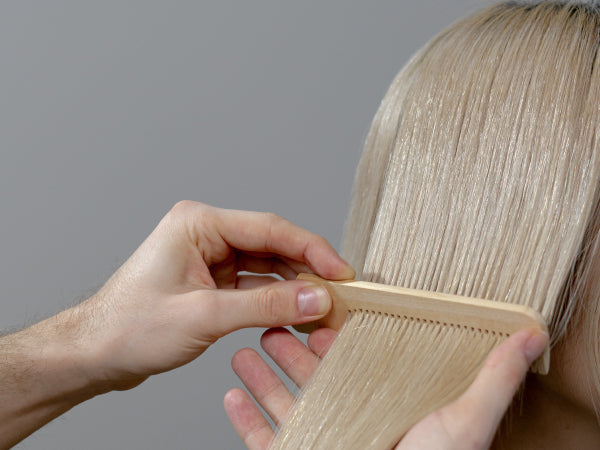The landscape of sustainability is one of constant shifts.
It is a path unique to the human that travels it. With no one way to participate.
Sustainability is not a contest. But a collective movement towards a new future. One that supports the renewal of Earth's resources in a safe way.
The journey is imperfect. We are imperfect. However, we invite the challenge of innovation. Of evolution. Finding new ways to bring more conscious products and packaging to market. For you. For Earth. For us.
Rethinking packaging design. From discarded materials. Unwanted products. To waste.
Giving discarded materials a second life — to become valuable useful resources again.
All materials in our packaging can be reused, composted, recycled or
properly disposed of in our waste systems.
Glass Jars & Bottles
Endless lifecycle. Glass bottles and jars create a continuous recycling loop.
Glass is inert. Infinitely recyclable. Reusable. Contains 100%
natural materials. Making it the ideal choice for sustainable practices.
In its earliest form glass begins as sand — the main material used in the production of glass.
Sand is transformed into a liquid state in high temperatures by glass bottle manufacturing companies. Once melted, sand cannot return to its original state. Its structure is permanently changed — converted into
something new. As it cools, it will never form a complete solid. It
remains in the state between solid and liquid — known as an amorphous solid. The molten glass is then poured into a mould, producing shaped
glass bottles.
Silica sand is fine white sand free of chemicals used to form a clear
glass. Silica sand can be mixed with several other materials—soda ash (sodium carbonate), Limestone (mostly comprised of calcium carbonate), and cullet (furnace ready, recycled, broken, or waste glass – which aids in the lack of raw or new materials needed).
United & Free vessels are made from milk glass. All our glass is SGS tested.
REPURPOSE or recycle at accepted facilities
Post Consumer Recycled (PCR) Closures
Second chance. Reused materials. No unnecessary plastics.
Post-consumer recycled materials, referred to as PCR, is material that is made from the items that consumers recycle, in this case, we use plastic. At this time the lids of our vessels are made from 50% PCR plastics. We chose 50% PCR due the type of mechanized closure of our
vessels. At the time of manufacture, 100% PCR had not been tested and
there was concern the products would spoil, and we would run the risk of waste of raw agricultural material and shipping emissions. We are currently innovating with our supplier to manufacture closures that are
made from 100% PCR materials. We expect to manufacture 100% PCR lids by mid-2022!
RECYCLE at accepted facilities
Sugarcane Bagasse Outer Packaging
Upcycling sugar production waste. Creating a closed-loop cycle.
We’ve upcycled the waste from sugar production into our outer packaging. Giving it a second life. The manufacturing process of sugar creates a by-product (otherwise unusable) known as bagasse. Sugarcane bagasse is renewable—it is the fibrous residue of the sugarcane stalks after juice extraction. Biocycle
notes that “Every 1,000 tons of sugarcane processed produces
approximately 100 tons of sugar and generates approximately 250 to 270 tons of bagasse.” Unused bagasse waste in its raw form is either burned at facilities or collects as waste—causing detrimental environmental impact. The environmental aspects of concern include global warming potential, acidification potential, eutrophication potential, and photochemical oxidant creation. This waste can be harmful to humans, animals, and ecosystems, if not utilized properly.
In a recent interview in the Economist, Matt Kaplin discusses how a team of researchers have devised sugarcane bagasse solutions as an alternative to the plastic-coated coffee cup — which could solve a large number of waste issues. Kaplin notes that bagasse has been tested by researchers for years and when buried in the ground, bagasse decomposes within months. It is important that the bagasse outer packaging be disposed of in the proper compost streams and not in the landfill. The process of composting is a specific process that does not occur in landfills. The composting process requires oxygen and good ventilation.
Landfills are mainly sealed with no air getting in. Incorrectly
disposing of the bagasse could lead to unnecessary gas emissions from uncomposted items with the item not fully breaking down in the correct
stream.
Our sugarcane bagasse is SGS tested. Our packaging follows the SGS chain of custody certification of FSC-certified paper, paperboard, and pulp. All parameters comply with the requirement stated in the Food and Drug Administration Regulations.
COMPOST in accepted facilities – remove the tape, dispose of in garbage.
Cellulose Acetate
Extended lifecycle. Breaks down in the right conditions.
Made from cellulose (wood or cotton pulp) and acetic acid.
With our minds on sustainable practices, we choose the material for our tooling very diligently. We decided on a bioplastic named cellulose acetate. Made from cellulose, the pulp from wood or cotton, and acetic acid which is derived from vinegar (the component that gives vinegar its
pungent and sour taste), we have a material that will give us longevity and durability for its use before returning to the cycle of the earth.
While there are products made from cellulose acetate that can be recycled with paper, such as cameras and video films, our combs are not currently able to be either recycled or composted by local facilities. Cellulose acetate is a bioplastic and breaks down into cellulose fiber
given enough exposer to UV radiation, saltwater, or acids, however, it does require these certain conditions to be met to properly degrade. Our
current composting facilities do not have the means to handle this type of breakdown. This means that currently, the best way of household disposal is through the garbage.
We are searching for the best materials that can suit our needs, we feel confident in using cellulose acetate for its longevity and durability, these aren’t single use products meant to be discarded but products that are meant to keep for its time of usage. That it is not made from petroleum sources so when it does break down it will degrade to natural fibers. Lastly, once it reaches its lifetime of use and it's ready to be discarded, you can send it back to us to recycle ourselves into second-life products.
Our tooling products are not meant to be purchased, throw away and repurchased, in a short cycle. They are products that are built to last the time of their intended use and at the end of their life cycle return to the earth creating a minimum amount of wastage.
FSC Comb Pouch and Boxes
100% post-consumer waste. FSC certified.
The paper for our comb pouch comes from 100% post-consumer waste. FSC certification means that we are buying our paper products from vetted suppliers who must meet FSC standards. FSC certified products come from forests that are managed responsibly and in a sustainable way.
The paper is thick and tactile meaning it can be reused to store your product. This product is easily recyclable for everyone.
How to repurpose - Recycle at a depot or in a multi-stream curbside
or multi-family recycling program where paper is separated from
containers.
Made in Vancouver.
Packaging Tape
Water activated.
Know as water activated tape, our tape is made from kraft paper and
activated by applying water to the adhesive side of the substrate. This
tape is durable, making it a great alternative to standard plastic
shipping tape.
How to repurpose - Recycle at a depot or in a multi-stream curbside
or multi-family recycling program where paper is separated from
containers.
Made in Canada.
Compostable Corn Void Fill
Our shipping fill is a bio-based foam material. It’s made from 100%
corn and is environmentally friendly. The fill protects your products
from damage when being shipped to your destination.
How to repurpose… certified compostable in the backyard and
commercial facilities. This product can be disposed of in your sink with
water.
The Sustainable Development Goals (SDGs), also known as the Global Goals, were adopted by the United Nations in 2015 as a universal call to action to end poverty, protect the planet, and ensure that by 2030 all people enjoy peace and prosperity.
UN Sustainable development goals
#14 Life Below Water
We commit to SDG #14: Conserve and sustainably use the oceans, seas and marine resources for sustainable development.
#13 Climate Action
We commit to SDG #13 Take urgent action to combat climate change and its impacts.
We commit to SDG #14: Conserve and sustainably use the oceans, seas and marine resources for sustainable development.
We commit to SDG #13 Take urgent action to combat climate change and its impacts.
About
Featured content
Organize content into multiple columns to share useful information to your customers about your products, values...

Leaping Bunny Cruelty-Free
All of our personal care products are Leaping Bunny Certified. We do not test on animals and follow strict guidelines regarding animal testing with respect to our product formulations. Their certification guarantees that a company is free of animal testing in all stages of product development.
Our manufacturing partners must also meet specific manufacturing criteria stating they do not test on animals and are audited on an annual basis.
Leaping Bunny standards go above and beyond to protect animals against animal testing which is why we will continue to work with them as a partner.

Mission Blue
We commit to a dedicated amount of 2% of revenue to our partner Mission Blue to further Marine protected areas.
Mission Blue is lead by world famous oceanographer, Dr. Sylvia Earle. Mission Blue is a global coalition supporting marine protected areas known as Hope Spots.
“Hope Spots are special places that are scientifically identified as critical to the health of the ocean. Our Hope Spots are championed by local conservationists whom we support with communications, expeditions and scientific advisory.”
- Dr Sylvia Earle.
We are currently involved in the Salish Sea Hope Spot initiative located on the West Coast of Canada and the United States. Our goal is to work with our partners to bring awareness and support to the Salish Sea Hope Spot.

PETA VEGAN and Cruelty-Free
United & Free is PETA’s Global Animal Test–Free and Vegan certified.
This certification, as stated by PETA, “recognizes companies and brands that have verified that they and their suppliers do not conduct, commission, pay for, or allow any tests on animals for their ingredients, formulations, or finished products anywhere in the world and that they will never do so in the future. It recognizes companies whose entire product line is free of animal-derived ingredients”.




